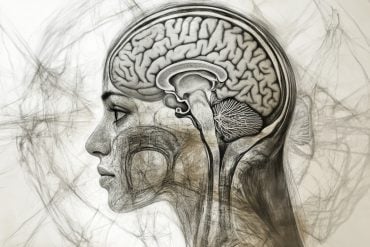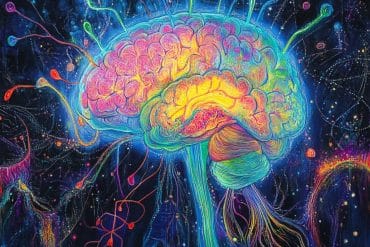Summary: A long-term study has revealed a dynamic link between self-esteem and sexual satisfaction, showing that the two factors influence each other. Higher self-esteem is associated with more frequent sexual activity and greater satisfaction, while positive sexual experiences can boost self-esteem over time.
The study, which followed over 11,000 German adults for 12 years, found that age and gender affect the strength of this connection, with women and older individuals showing stronger correlations. These insights help clarify the complex interaction between how people feel about themselves and their sexual well-being.
Key Facts:
- Self-esteem and sexual satisfaction influence each other over time.
- Women and older adults showed stronger links between self-esteem and sexual well-being.
- Positive sexual experiences can lead to increased self-esteem, and vice versa.
Source: University of Zurich
A long-term study by the Universities of Zurich and Utrecht has confirmed a dynamic correlation between self-esteem and sexual satisfaction.
The results provide valuable insights about longstanding questions about whether better sex makes you feel better, feeling better makes you have better sex, or both.
Various theories suggest that people with higher self-esteem tend to have more satisfying sexual relationships and that the two factors influence each other. However, little research has been done to date on how this interaction develops over time.

A new study based on a nationally representative sample of more than 11,000 German adults provides some interesting insights. The study was conducted by researchers from the Universities of Zurich (UZH) and Utrecht who analyzed 12-year data of people’s self-esteem and sexual experiences.
Long-term study shows a reciprocal effect
“People with higher self-esteem tend not only to be sexually active more often, but also to be more satisfied with their sexual experiences,” explain lead authors Elisa Weber and Wiebke Bleidorn from the Department of Psychology at UZH.
There were also significant correlations over time: changes in sexual satisfaction led to changes in a person’s self-esteem, and vice versa. These intra-individual associations show that self-esteem and sexual satisfaction can influence each other.
Findings on the dynamic interaction between self-esteem and sexual well-being are supported by theories that view self-esteem as a kind of social barometer that indicates the extent to which we feel accepted and valued in our relationships with other people.
Positive experiences in social and intimate relationships can increase self-esteem, while negative experiences are interpreted as a kind of warning signal for social rejection and are reflected in lower self-esteem in the long term.
At the same time, people with high self-esteem may be better able to communicate their desires and preferences to intimate partners, resulting in greater sexual well-being in the long term.
Age and gender matter
However, the study also showed that the correlations are not equally pronounced for all people. Age and gender matter: older people and women tended to show a stronger connection between self-esteem and sexual well-being than younger people and men.
Interestingly, relationship status did not appear to be relevant, as the link between self-esteem and sexual well-being was as strong for single people as it was for people in relationships.
Wiebke Bleidorn puts the study’s findings in context: “Answering these questions is of immense importance. Our results suggest that self-esteem plays an important role in our sexual experience, particularly with regard to sexual well-being. At the same time, changes in sexual well-being can also lead to changes in self-esteem.
“The results of this study help to understand the complex interplay between self-esteem and sexual experience and provide important impetus for future research in this area,” according to the author.
About this self-esteem and sexual satisfaction psychology research news
Author: Barbara Simpson
Source: University of Zurich
Contact: Barbara Simpson – University of Zurich
Image: The image is credited to Neuroscience News
Original Research: Open access.
“Self-Esteem and Sexual Experiences” by Elisa Weber et al. Personality and Social Psychology Bulletin
Abstract
Self-Esteem and Sexual Experiences
There is evidence that people with higher self-esteem tend to have more satisfying sexual relationships, but little is known about how changes in people’s self-esteem and sexual experiences are related over time.
Several theories predict reciprocal effects between self-esteem and sexual experiences.
The present study tested these theories using 12-wave longitudinal data from more than 11,000 participants of a representative sample in Germany. Data were analyzed using Random Intercept Cross-lagged Panel Models.
Results indicated significant between-person associations between stable levels of self-esteem and both the frequency and the quality of sexual experiences. Moreover, we found reciprocal within-person transactions between self-esteem and sexual satisfaction but not sexual frequency.
Overall, the present pattern of results provides evidence for theories that consider self-esteem as both a source and consequence of intimate sexual relationships.






